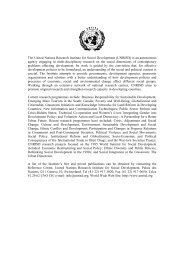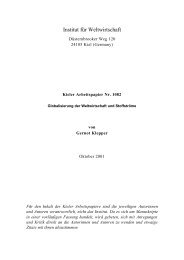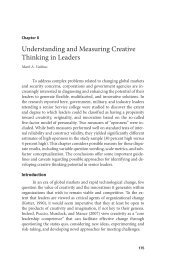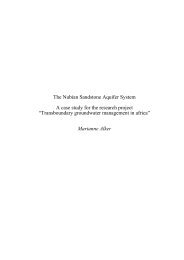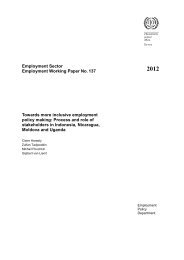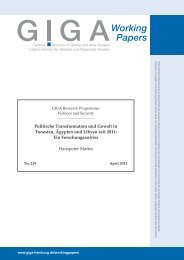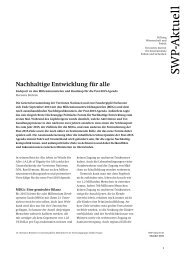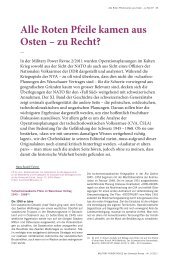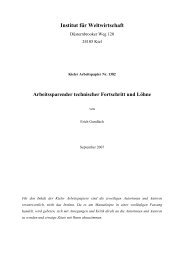Global Jihad: temi, piste di diffusione e il fenomeno del reducismo ...
Global Jihad: temi, piste di diffusione e il fenomeno del reducismo ...
Global Jihad: temi, piste di diffusione e il fenomeno del reducismo ...
You also want an ePaper? Increase the reach of your titles
YUMPU automatically turns print PDFs into web optimized ePapers that Google loves.
Islamic and Islamist groups emphasize the struggle against Jews and Judaism as<br />
well, highlighting the Israeli-Palestinian conflict and the supposedly global scope of<br />
Jewish influence, particularly on U.S. policy, culture and decisionmaking. The violent<br />
struggle of Hamas and Hizballah primar<strong>il</strong>y since the 1990s, when the prospects of<br />
reconc<strong>il</strong>iation between Israel and the Palestinians seemed close, emphasized the<br />
religious <strong>di</strong>mension of this old conflict. National and ethnic conflicts in the Balkans<br />
and Central Asia during this time had the same effect, and contributed to the<br />
globalization of the Islamist struggle. Consequently, in many Western societies, Islam<br />
in general has come to be identified with violence, terror, and fanaticism, and is<br />
considered a threat on their in<strong>di</strong>vidual and communal security.<br />
This association is mislea<strong>di</strong>ng but unfortunately popular among both Muslim and<br />
Western publics. Terms such as “fundamentalist”, “extremist”, “Islamic”, “Islamist”,<br />
and “political Islam”, are misused by many politicians, decisionmakers, journalists,<br />
citizens, and even scholars in the West. Sim<strong>il</strong>arly, Arab regimes—which generally<br />
control the press and to a certain extent, public opinion—tend not to <strong>di</strong>stinguish<br />
between various kinds of Islamic movements, organizations, groups, and<br />
in<strong>di</strong>viduals. Although Western influence is partly responsible for this phenomenon,<br />
its roots lie in the fact that many Arab regimes now feel threatened by any movement<br />
that is linked to Islam.<br />
Nevertheless, the “Islam versus the West” para<strong>di</strong>gm has grown, partly because<br />
<strong>di</strong>fferent Islamist groups have succeeded in gaining the legitimacy of Islamic<br />
establishments and in presenting parts of their sociopolitical and cultural doctrines<br />
to much of the Arab and Muslim worlds as the only true commentary of Islam. Their<br />
success has been fac<strong>il</strong>itated by a number of factors, inclu<strong>di</strong>ng the Arab-Israeli and<br />
Palestinian-Israeli conflicts, the socio-economic problems of Muslim countries,<br />
opposition to most of the local governments, and the general public host<strong>il</strong>ity toward<br />
the West and the United States—a host<strong>il</strong>ity that has equally been encouraged by<br />
various secular, socialist and even semi-Marxist, and nationalist elements in the<br />
region. This success is also attributable to the interdependent structure of <strong>di</strong>fferent<br />
48





